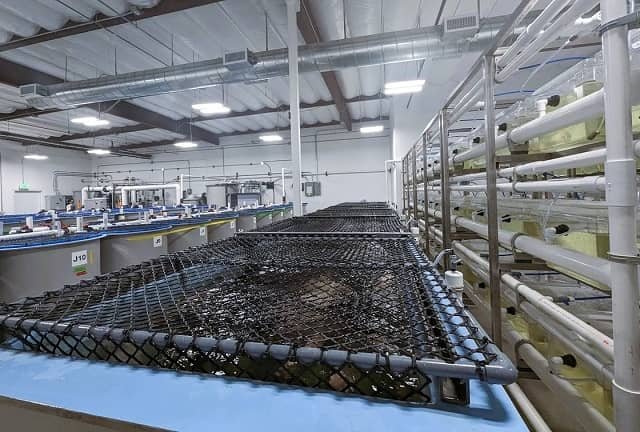
The Center for Aquaculture Technologies (CAT) has announced an expansion of their San Diego facility by opening the Finfish Genetics Innovation Center. The new research space is fully dedicated to the delivery of foundational advances in genome editing technologies for commercial aquaculture applications.
This investment represents a significant step by CAT in their mission to help the aquaculture industry increase efficiency through the development and application of genomic tools for next-generation breeding.”The San Diego facility expansion aligns with our plans to accelerate strategic growth and expand CAT’s global footprint’, says Dr. John Buchanan, President and CEO, “the Finfish Genetics Innovation Center will support the continued commercialization of our patented genome editing technologies and ability to drive genetic innovation in aquaculture.”
The facility includes a state-of-the-art genome editing and germ cell transfer laboratory for commercial-scale research applications, as well as a wet lab for data collection. Also included are new, world-class RAS systems, custom-built to support research and animal welfare, and to help streamline maintenance and husbandry activities. Bringing these three workspaces together under one roof will enhance efficiency in conducting research and delivering breakthroughs. Of the new Center, Matt Stone, Facility Manager, says, “Our Aquatic Facilities team is looking forward to utilizing the new Finfish Genetics Innovation Center and is excited to participate in the groundbreaking research in aquaculture genetics and genomics.”
This modern facility will be dedicated to Dr. Michael Horne for his contributions as an advisor to CAT, and for his dedication to aquaculture innovation. For decades, Mike has been a trailblazer in the world of aquaculture research, and his work has left a permanent and undeniably positive mark on the industry and a host of aquaculture scientists.
Editor at the digital magazine AquaHoy. He holds a degree in Aquaculture Biology from the National University of Santa (UNS) and a Master’s degree in Science and Innovation Management from the Polytechnic University of Valencia, with postgraduate diplomas in Business Innovation and Innovation Management. He possesses extensive experience in the aquaculture and fisheries sector, having led the Fisheries Innovation Unit of the National Program for Innovation in Fisheries and Aquaculture (PNIPA). He has served as a senior consultant in technology watch, an innovation project formulator and advisor, and a lecturer at UNS. He is a member of the Peruvian College of Biologists and was recognized by the World Aquaculture Society (WAS) in 2016 for his contribution to aquaculture.
